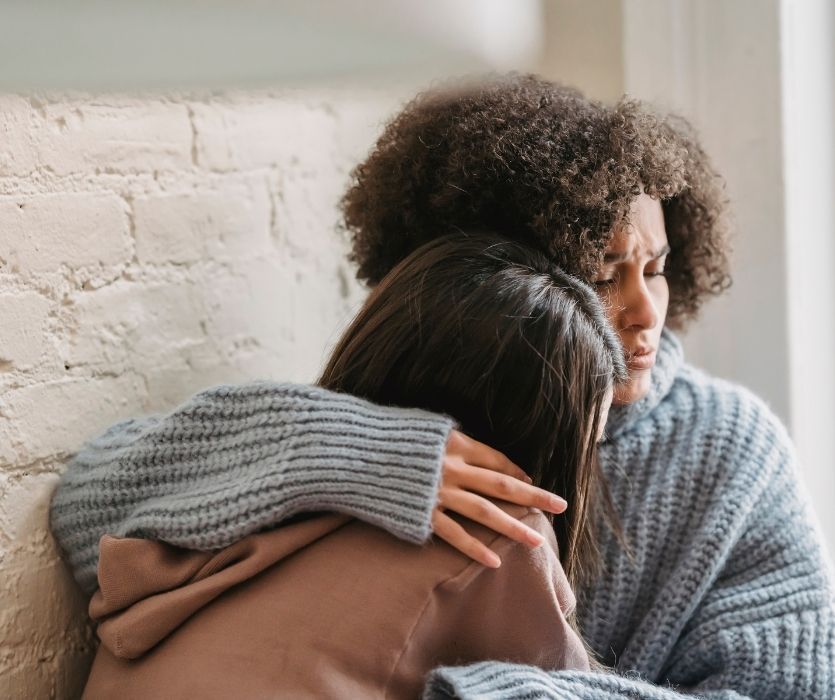Witnessing a family member or close friend grieve their child may be one of the hardest challenges you’ll have to face and it can be hard to know what to say or do for your person.
Having been there myself, I received an amazing amount of support from friends and family and wanted to share some of the ways to best support them in their grief.
Megan Devine from Refuge in Grief had a post on Instagram that captured it so wholly and eloquently that I thought it was worth resharing.
Remember that grief belongs to the griever
So many of the suggestions, advice and “help” given to the griever tells them they should be doing this differently, or feeling differently than they do. Grief is a very personal experience and belongs entirely to the person experiencing it. You may believe you would do things differently if it had happened to you. We hope you do not get the chance to find out. This grief belongs to your friend: follow his or her lead.
Drop off or send care packages
Care packages are great. Tangible evidence of love & support is a wonderful thing. A few ideas: Gift cards for food delivery services & local restaurants they like, bottled water & healthy beverages, meals portioned into small containers (including a note saying they can keep the containers), healthy pre-packaged, single-serving foods (e.g. granola bars, dried fruit & nuts, snack crackers), packs of disposable plates & cutlery, easy-care house plants, put together easy self-care kits (e.g. face wipes, lotion, soothing face masks & under-eye gel pads, lip balm, comfy socks, favorite treats or snacks, etc.).
Stay present and state the truth
Don't talk about "later." When someone you love is in pain, it’s tempting to talk about how much better or great things are going to be for them in the future, how there are "bright days ahead." You don't know what the future holds. Things may or may not be better “later.” Right now, in this present moment, the future is irrelevant. Stay in the present moment, or, if the person is talking about the past, join them there. Allow them to choose.
Be specific about how you can help
Do not say “Call me if you need anything,” because your friend will not call. Not because they do not need, but because identifying a need, figuring out who might fill that need, and then making a phone call to ask is light years beyond their energy levels, capacity or interest. Instead, make concrete offers: “I will be there at 4 p.m. on Thursday to bring your recycling to the curb,” or “I will stop by each morning on my way to work and give the dog a quick walk.” Be reliable.
State the truth
It's tempting to make generalized statements about this situation in an attempt to soothe your friend. You cannot know that your friend's loved one "finished their work here," or that "they are in a better place." These future-based, omniscient, generalized platitudes aren't helpful. Do not try to fix the unfixable. Stick with the truth: This hurts. I love you. I'm here.
Do the recurring things
The actual, heavy, real work of grieving is not something you can do, but you can lessen the burden of “normal” life requirements for your friend. Are there recurring tasks or chores that you might do? Things like walking the dog, refilling prescriptions, shoveling snow and bringing in the mail are all good choices. Support your friend in small, ordinary ways. These things are tangible evidence of love.
Try not to do anything that's irreversible
Please try not to do anything that is irreversible — like doing laundry or cleaning up the house — unless you check with your friend first. That empty soda bottle beside the couch may look like trash, but may have been left there by their husband just the other day. The dirty laundry may be the last thing that smells like her. Do you see where I’m going here? Tiny little normal things become precious. Always ask first.
Don't compare griefs
Every person has experienced loss in their life, but no one else has experienced THIS grief. It's tempting to offer your own experiences of grief to let the grieving person know you understand. But the truth is you don't understand. You can't. Every loss is unique to the person experiencing it. Even if your loss is empirically very similar, you haven't been exactly where they are right now. Resist the urge to use your own experience as a point of connection. Always ASK FIRST before sharing your own story of loss.
Say their person's name
Don't be afraid to share memories of your friend's person. Use their name in conversation. Trying to work around the gaping hole that has opened in your friend's life doesn't help them. You aren't sparing their feelings by refraining from talking about or saying the name of someone they lost. Share memories you have in common with your friend or stories about their person that they may not have heard before. It's a beautiful way to reach out and connect, to be present and acknowledge this loss.
Tackle projects together
Depending on the circumstance, there may be difficult tasks that need tending — things like casket shopping, mortuary visits, the packing and sorting of rooms or clothes. Offer your assistance and follow through with your offers. Follow your friend’s lead in these tasks. Your presence alongside them is powerful and important; words are often unnecessary. Be willing to bear witness and be there during searing, unbearable pain.
More resources
- It’s OK That You’re Not OK by Megan Devine.
- Here is a list of resources that you may find helpful for someone on a grief journey.
- If you would like us to send a "Thinking of You" or "Sending Love" card on your behalf to the bereaved parent with Luella's Lodge contact information on the back, please reach out to us. We will personalize it with a message from you inside.
- If you'd like to send something to the grieving parent, Laurel Box is a small company that creates thoughtful grief packages and gifts.
About Luella's Lodge
Luella’s Lodge is a 501(c)(3) non-profit organization that provides support groups and non-traditional holistic therapies for families grieving the death of a child. Our beautiful log cabin is located on 10 peaceful acres in Oakwood, Illinois, and provides a retreat where families can connect with one another through grief and healing. You can find out more about upcoming retreats or about how to donate.
You may also find this helpful: What to do when you’re pregnant and your friend isn’t?




Leave a Comment